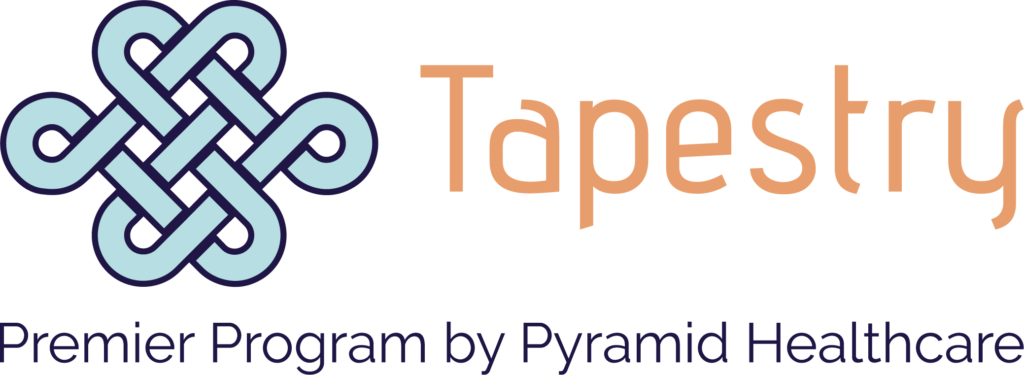Table of Contents
- How Nutrition Education Helps
- Meal Planning in Recovery from Bulimia
- The Role of a Food Journal
- Recovery From Bulimia is Possible
Bulimia is characterized by bingeing on food and then self-induced purging behaviors such as vomiting, compulsively exercising or using laxatives, diuretics or diet pills. People suffering from bulimia often feel a loss of control overeating. Regaining a sense of control is central to increasing self-confidence and self-efficacy and getting past urges to binge and purge. A bulimia recovery meal plan has proven to be an effective way of regaining that lost control.
Eating a balanced, nutritionally rich diet is essential for successful recovery from bulimia. Important components of a holistic treatment program include nutrition education and counseling and meal planning, which help to repair damage done to the body and developing healthy, normal eating habits.
How Nutrition Education Helps Treat Bulimia
According to a study published in the journal Nutricion Hospitalaria, nutrition education programming improved eating disorder symptoms and helped to normalize the eating patterns of people in recovery from an eating disorder. According to the study, 70 percent of participants were eating from at least three food groups at the end of the program, compared to 34 percent at the beginning of the program. Additionally, the number of participants eating fewer than four meals a day decreased from 70 percent at the beginning of the study to 19 percent at the end.
How Bulimia Changes Mealtime
People with bulimia often lose touch with their body’s natural hunger and fullness cues, and they may lose the ability to regulate their eating habits. It’s common for people with bulimia to have beliefs about food and eating that are misleading or inaccurate. For example, someone may believe that carbs and fat make you fat or that some foods are “good” and some are “bad.” The National Eating Disorders Association notes that food rituals and discomfort with eating around other people are also common for those with bulimia.
The Ways Nutrition Education Helps
Nutrition education helps separate truth from fiction and teaches that all foods are okay to eat in moderation. Participants learn the importance of getting adequate amounts of fats, carbohydrates and proteins each day for optimal physical and mental functioning. Nutrition education teaches healthy portion sizes and the devastating health effects of bingeing, purging and restricting certain foods.
Nutrition programming through a high-quality treatment program will include nutrition counseling, which helps clients identify personal beliefs about food and eating; address their attitudes and beliefs surrounding their body image; and examine their eating patterns and food intake. Nutrition counseling helps people with bulimia:
- Address fears around eating and make peace with all foods
- Develop a healthy relationship with food and eating
- Learn the difference between physical and emotional hunger
- Decrease negative thoughts and emotions associated with eating or eating certain foods
- Reduce the time spent thinking about food
- Reduce bingeing cravings and purging behaviors
- Learn how to eat in a balanced way and in moderation
- Recognize their internal and external hunger and fullness cues
During nutrition counseling, a registered dietitian assesses your relationship with food and provides skills and strategies to help reduce unhealthy thought and behavior patterns surrounding eating habits. The dietitian will identify any potential nutritional deficiencies and recommend supplementation or specific foods to address them. Together, you and the dietitian will develop an individualized meal plan to promote successful recovery.
The Importance of Meal Planning in Recovery from Bulimia
A bulimia recovery meal plan provides the necessary nutrition for optimal physical and mental health. It also offers the structure to develop healthier eating habits for long-term successful recovery. The main goal of meal planning is to promote eating regular, balanced meals. Structured eating also improves your metabolism, restores good health and helps ward off cravings to binge.
Meal planning involves creating a weekly menu, making a grocery list, and shopping for the week’s food ahead of time. The meal plan will serve as an eating schedule and will typically include three meals and two or three snacks each day. Ideally, the meal plan will have you eating every three to four hours. Meal plans are highly personalized, based on your unique nutritional needs, food issues, lifestyle and preferences. Your meal plan will ideally include a variety of foods from each food group, and it will provide your body with the appropriate balance of carbs, fats and proteins it needs for optimal functioning.
The meal plan promotes the important idea of food as fuel and as medicine, and adhering to it will help you regain a sense of control over what and how much you’re eating. Regular meals help to restore the body’s natural hunger and fullness cues, and following the meal plan helps you avoid skipping meals, which can lead to bingeing. The ultimate goal of the meal plan is to restore normal, intuitive eating habits by demonstrating healthy eating patterns and portion sizes.
For some, meal planning is a temporary strategy to help restore normal eating habits and good health. But for others, meal planning will be a lifelong endeavor to stay on track with recovery and prevent relapse. When it becomes a way of life, meal planning can save you money on groceries and time at the grocery store, and it reduces the stress and indecision that can permeate mealtime.
The Role of a Food Journal in Recovery From Bulimia
Keeping a food journal is an important part of recovery, according to an article published in the Journal of Food and Nutritional Disorders. Food journaling involves keeping a written inventory of all of the food you eat, but it goes beyond tracking meals. In the journal, you’ll also record your thoughts and emotions before, during and after eating. This helps you become more aware of your patterns surrounding eating. Each week, you share your food diary with your dietitian, who will help you recognize dysfunctional thought and behavior patterns that can impede progress in recovery. The dietitian will offer a variety of strategies for improving the way you think, feel and behave concerning food and eating.
How to Keep a Food Journal
The food journal can be a notebook that you write in, or it may be forms provided by your dietitian. Some prefer online food journaling, while others may use an app on their smartphone to record meals and thoughts. Whatever form the food journal takes, it’s an effective tool for improving mindfulness and helping you express complex feelings associated with food and eating. It helps you create structure around eating, and it helps you learn to listen to your body’s hunger and fullness cues. It brings greater awareness about how certain foods make your body feel and how eating affects your thoughts and emotions.
Concerns with Keeping a Food Journal
Some people initially balk at keeping a food journal. They feel like recording everything they eat will lead to negative feelings, or they’re embarrassed to share their journal with their dietitian. Some may worry that the journal will perpetuate some of the unhealthy, obsessive behaviors they had surrounding food, while others may be concerned that because of their perfectionist tendencies, the food journal will simply amplify their “failures.”
What’s important to note is that keeping track of your successes and slip-ups and recording your thoughts and feelings about food will help you change your unhealthy thoughts and behaviors associated with food and eating. It’s also important to remember that your dietitian is not the food police, but rather a specialist whose job is to help you address a range of issues to improve your eating patterns and develop a healthier relationship with food. The dietitian will help you overcome challenges and barriers to healthy eating and promote positive interactions with food.
Recovery From Eating Disorders is Possible
The National Institute on Mental Health stresses that eating disorders are treatable, and complete recovery is possible. As integral components of a comprehensive treatment program, nutrition education and counseling help you understand how your body uses food to thrive, and meal planning helps you repair your body and develop healthy, intuitive eating habits. The more you engage with your recovery plan, and the longer you adhere to your meal plan, the better the outcomes of treatment. Keep an open mind,practice honesty and flexibility and be kind to yourself, and you’ll enjoy successful recovery and a healthier, happier future.






